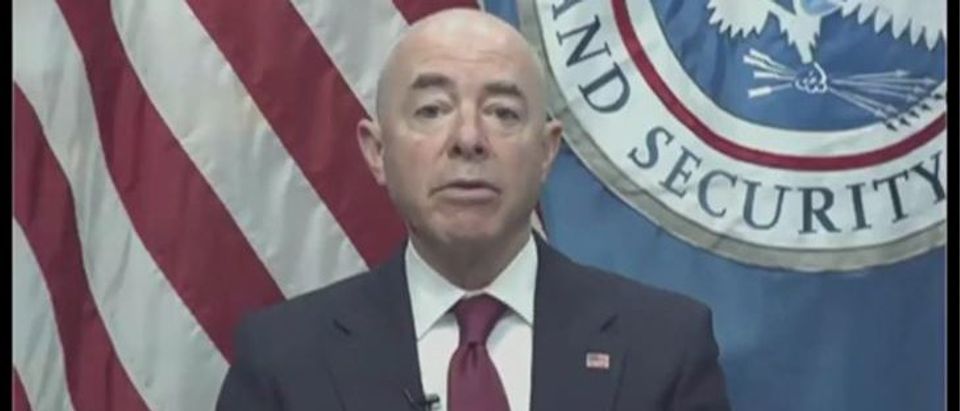Department of Homeland Security Secretary Alejandro Mayorkas refused to answer a question during a Wednesday congressional hearing about whether or not illegal immigrants with COVID-19 were released into the country.
“There were times earlier when individuals were apprehended and we sought to expel them and we were unable to expel them and we were compelled to release them and we did not have the opportunity to test them,” Mayorkas admitted to Republican Georgia Rep. Andrew Clyde.
“@SecMayorkas just admitted to me that the Biden Administration released migrants captured at the border into the United States without testing them for COVID-19.”
-Rep. Clyde@HomelandGOP @DHSgov https://t.co/OZbBPyHQme
— Congressman Clyde Press Office (@Rep_Clyde) March 17, 2021
Clyde grew testy with Mayorkas, complaining that Mayorkas refused to answer his question.
“You’re telling me that no one is released into our country that is COVID-19 positive?” Clyde asked. When Mayorkas claimed that he was repeating himself, Clyde responded, “That’s just a yes or no question.”
“We are doing the best we can to ensure that the policy is being enforced 100% of the time,” Mayorkas continued.
“The best we can? So it is still possible then that foreign nationals who test positive for COVID-19 to enter our country. Is that what you’re saying then?” Clyde replied.
Earlier in the hearing, Mayorkas refused to call the surge of illegal immigrants, particularly unaccompanied minors, at the southern border a crisis.
Press Secretary Jen Psaki has also repeatedly refused to label the surge a crisis.
Many Republicans, including Texas Sen. Ted Cruz, and California Rep. Kevin McCarthy, have blamed the Biden Administration’s comparatively lax immigration policies for the surge. (RELATED: ‘Oh It’s A Crisis’: Joe Manchin Criticizes Biden’s Immigration Response)
Leaked documents from the Department of Health and Human Services (HHS) revealed that the Biden administration expects the department to run out of beds in shelters that house unaccompanied minors by the end of March. The Center for Disease Control and Prevention is allowing those shelters and other facilities to operate at 100% capacity, despite concerns about COVID-19.


